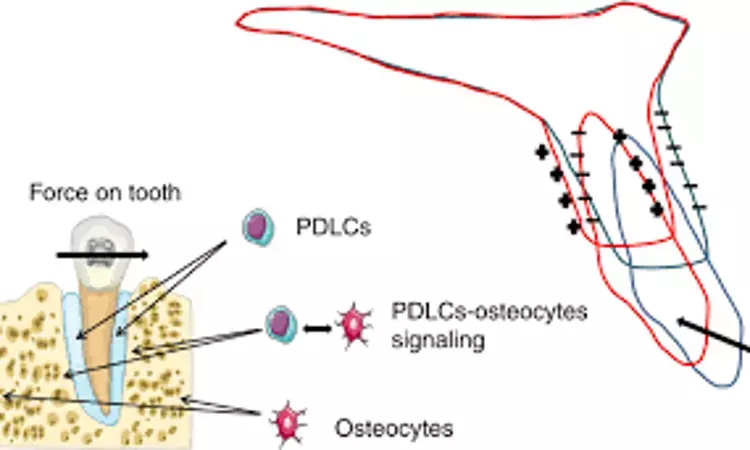- Home
- Medical news & Guidelines
- Anesthesiology
- Cardiology and CTVS
- Critical Care
- Dentistry
- Dermatology
- Diabetes and Endocrinology
- ENT
- Gastroenterology
- Medicine
- Nephrology
- Neurology
- Obstretics-Gynaecology
- Oncology
- Ophthalmology
- Orthopaedics
- Pediatrics-Neonatology
- Psychiatry
- Pulmonology
- Radiology
- Surgery
- Urology
- Laboratory Medicine
- Diet
- Nursing
- Paramedical
- Physiotherapy
- Health news
- Fact Check
- Bone Health Fact Check
- Brain Health Fact Check
- Cancer Related Fact Check
- Child Care Fact Check
- Dental and oral health fact check
- Diabetes and metabolic health fact check
- Diet and Nutrition Fact Check
- Eye and ENT Care Fact Check
- Fitness fact check
- Gut health fact check
- Heart health fact check
- Kidney health fact check
- Medical education fact check
- Men's health fact check
- Respiratory fact check
- Skin and hair care fact check
- Vaccine and Immunization fact check
- Women's health fact check
- AYUSH
- State News
- Andaman and Nicobar Islands
- Andhra Pradesh
- Arunachal Pradesh
- Assam
- Bihar
- Chandigarh
- Chattisgarh
- Dadra and Nagar Haveli
- Daman and Diu
- Delhi
- Goa
- Gujarat
- Haryana
- Himachal Pradesh
- Jammu & Kashmir
- Jharkhand
- Karnataka
- Kerala
- Ladakh
- Lakshadweep
- Madhya Pradesh
- Maharashtra
- Manipur
- Meghalaya
- Mizoram
- Nagaland
- Odisha
- Puducherry
- Punjab
- Rajasthan
- Sikkim
- Tamil Nadu
- Telangana
- Tripura
- Uttar Pradesh
- Uttrakhand
- West Bengal
- Medical Education
- Industry
Orthodontic movement may not affect prognosis of RCT teeth regardless of presence of apical periodontitis: Study

Orthodontic movement may not affect the prognosis of RCT teeth regardless of the presence of apical periodontitis suggests a study published in the Journal of Endodontics.
Often there is the need to move endodontically treated teeth. Orthodontic movement may not affect the prognosis of teeth with root canal treatment (RCT). To verify this subject, we evaluated the effect of orthodontic movement on the prognosis of RCT teeth using cone-beam computed tomography (CBCT). Further, we explored the influence of orthodontic movement on the prognosis of RCT teeth with and without apical periodontitis (AP). This retrospective study evaluated 169 RCT teeth of 100 patients who had undergone fixed orthodontic treatment. AP was assessed and classified using the CBCT periapical index. Univariate analysis of RCT outcome was performed for the total RCT group, RCT without AP group and RCT with AP group. Multivariate logistic regression was performed for the total RCT group and RCT without AP group, respectively, but not for the RCT with AP group. Variables related to the prognosis of RCT were included, such as age, gender, tooth position, RCT quality, coronal restoration quality, periodontal condition, orthodontic traction distance, and orthodontic rotation angle.
Results: The orthodontic traction distance and rotation angle were not significantly correlated to the RCT outcomes, regardless of the presence of AP. Among the total RCT group, teeth with unqualified RCT (odds ratio = 3.42, P = .004) and inadequate coronal restoration (odds ratio = 4.40, P = .031) had a lower success rate. Of the 97 RCT teeth without AP, unqualified RCT was a risk factor for treatment failure (odds ratio = 3.55, P = .041). Of the 72 RCT teeth with AP, the univariate analysis showed that RCT quality were significantly related to the outcome (P = .042). Orthodontic movement had no effect on the prognosis of RCT teeth regardless of the presence of AP.
Reference:
Chen X, Liu SQ, Wang XX, Liu W, Zhou X, Wang X. Effect of Orthodontic Treatment on the Outcomes of Endodontically Treated Teeth: A Cone-Beam Computed Tomography Analysis. J Endod. 2024 May 18:S0099-2399(24)00282-6. doi: 10.1016/j.joen.2024.05.002. Epub ahead of print. PMID: 38763483.
Dr. Shravani Dali has completed her BDS from Pravara institute of medical sciences, loni. Following which she extensively worked in the healthcare sector for 2+ years. She has been actively involved in writing blogs in field of health and wellness. Currently she is pursuing her Masters of public health-health administration from Tata institute of social sciences. She can be contacted at editorial@medicaldialogues.in.
Dr Kamal Kant Kohli-MBBS, DTCD- a chest specialist with more than 30 years of practice and a flair for writing clinical articles, Dr Kamal Kant Kohli joined Medical Dialogues as a Chief Editor of Medical News. Besides writing articles, as an editor, he proofreads and verifies all the medical content published on Medical Dialogues including those coming from journals, studies,medical conferences,guidelines etc. Email: drkohli@medicaldialogues.in. Contact no. 011-43720751


